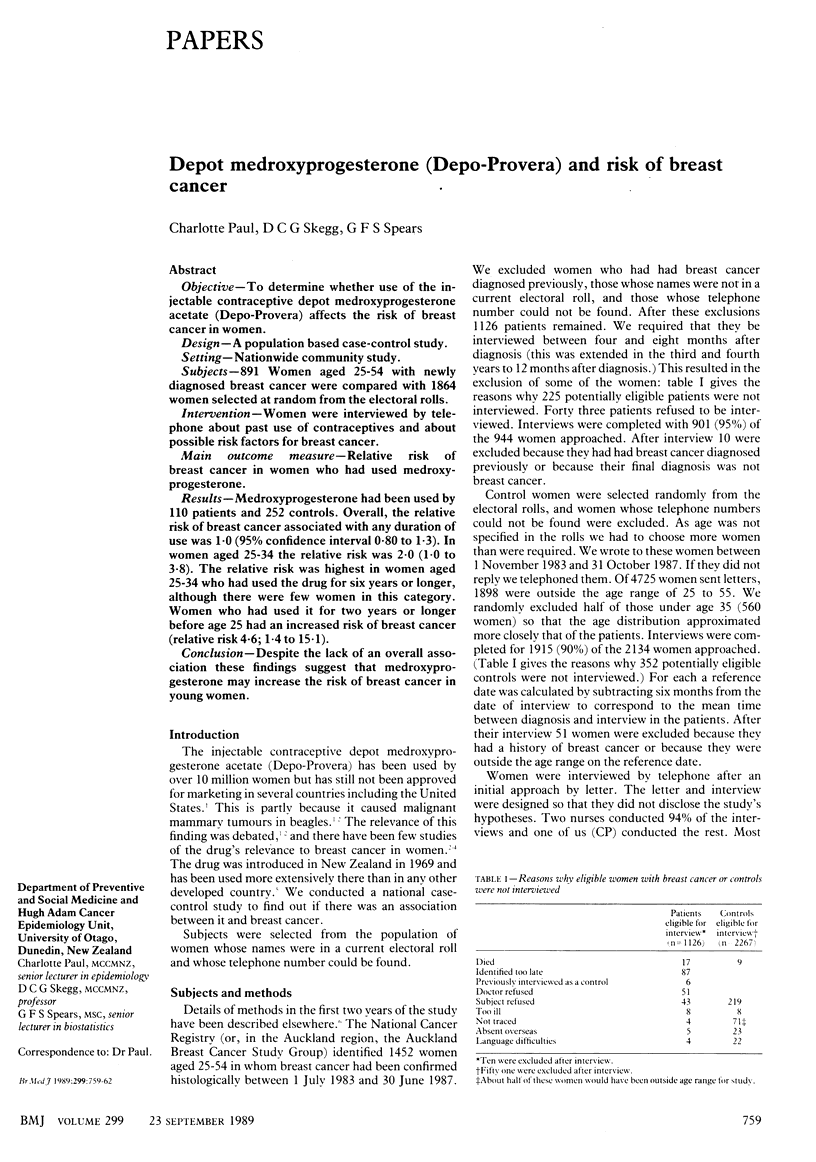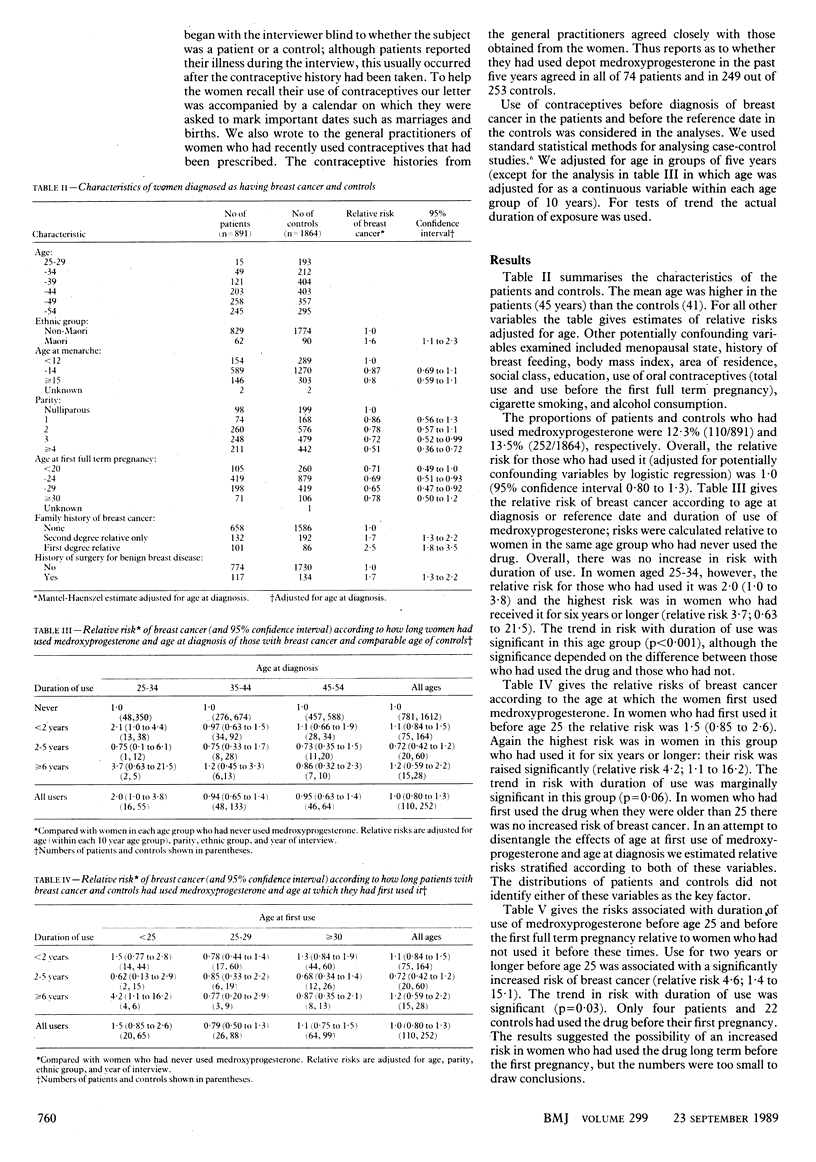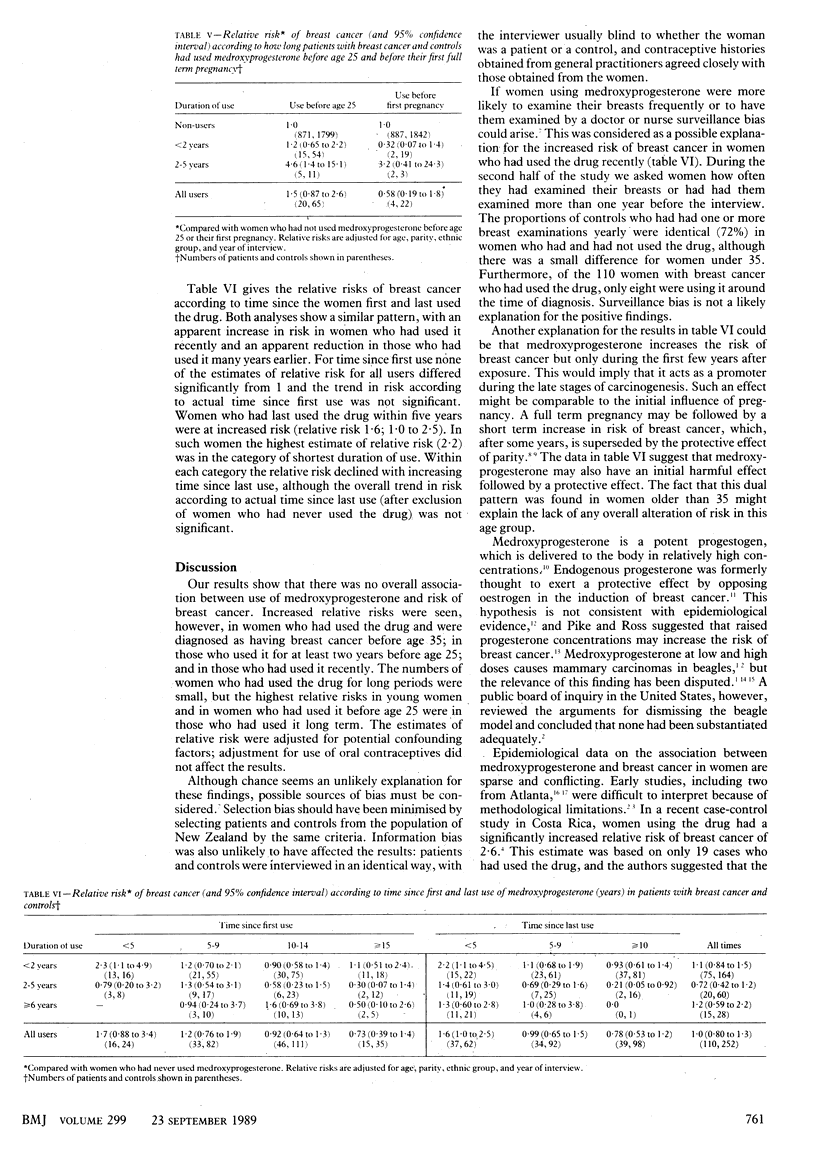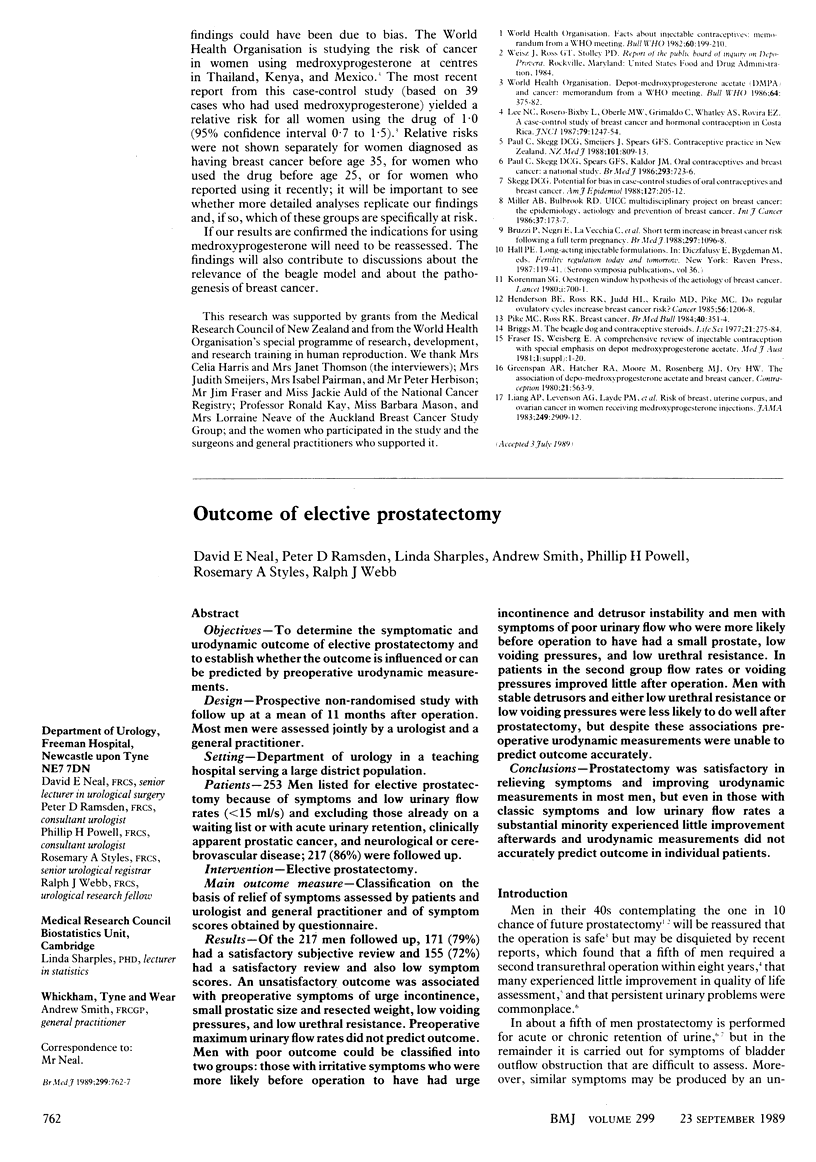Abstract
OBJECTIVE--To determine whether use of the injectable contraceptive depot medroxyprogesterone acetate (Depo-Provera) affects the risk of breast cancer in women. DESIGN--A population based case-control study. SETTING--Nationwide community study. SUBJECTS--891 Women aged 25-54 with newly diagnosed breast cancer were compared with 1864 women selected at random from the electoral rolls. INTERVENTION--Women were interviewed by telephone about past use of contraceptives and about possible risk factors for breast cancer. MAIN OUTCOME MEASURE--Relative risk of breast cancer in women who had used medroxyprogesterone. RESULTS--Medroxyprogesterone had been used by 110 patients and 252 controls. Overall, the relative risk of breast cancer associated with any duration of use was 1.0 (95% confidence interval 0.80 to 1.3). In women aged 25-34 the relative risk was 2.0 (1.0 to 3.8). The relative risk was highest in women aged 25-34 who had used the drug for six years or longer, although there were few women in this category. Women who had used it for two years or longer before age 25 had an increased risk of breast cancer (relative risk 4.6; 1.4 to 15.1). CONCLUSION--Despite the lack of an overall association these findings suggest that medroxyprogesterone may increase the risk of breast cancer in young women.
Full text
PDF



Selected References
These references are in PubMed. This may not be the complete list of references from this article.
- Briggs M. The beagle dog and contraceptive steroids. Life Sci. 1977 Aug 1;21(3):275–284. doi: 10.1016/0024-3205(77)90507-0. [DOI] [PubMed] [Google Scholar]
- Bruzzi P., Negri E., La Vecchia C., Decarli A., Palli D., Parazzini F., Del Turco M. R. Short term increase in risk of breast cancer after full term pregnancy. BMJ. 1988 Oct 29;297(6656):1096–1098. doi: 10.1136/bmj.297.6656.1096. [DOI] [PMC free article] [PubMed] [Google Scholar]
- Greenspan A. R., Hatcher R. A., Moore M., Rosenberg M. J., Ory H. W. The association of depo-medroxyprogesterone acetate and breast cancer. Contraception. 1980 Jun;21(6):563–569. doi: 10.1016/0010-7824(80)90029-3. [DOI] [PubMed] [Google Scholar]
- Lee N. C., Rosero-Bixby L., Oberle M. W., Grimaldo C., Whatley A. S., Rovira E. Z. A case-control study of breast cancer and hormonal contraception in Costa Rica. J Natl Cancer Inst. 1987 Dec;79(6):1247–1254. [PubMed] [Google Scholar]
- Liang A. P., Levenson A. G., Layde P. M., Shelton J. D., Hatcher R. A., Potts M., Michelson M. J. Risk of breast, uterine corpus, and ovarian cancer in women receiving medroxyprogesterone injections. JAMA. 1983 Jun 3;249(21):2909–2912. [PubMed] [Google Scholar]
- Miller A. B., Bulbrook R. D. UICC Multidisciplinary Project on Breast Cancer: the epidemiology, aetiology and prevention of breast cancer. Int J Cancer. 1986 Feb 15;37(2):173–177. doi: 10.1002/ijc.2910370202. [DOI] [PubMed] [Google Scholar]
- Paul C., Skegg D. C., Smeijers J., Spears G. F. Contraceptive practice in New Zealand. N Z Med J. 1988 Dec 14;101(859):809–813. [PubMed] [Google Scholar]
- Paul C., Skegg D. C., Spears G. F., Kaldor J. M. Oral contraceptives and breast cancer: a national study. Br Med J (Clin Res Ed) 1986 Sep 20;293(6549):723–726. doi: 10.1136/bmj.293.6549.723. [DOI] [PMC free article] [PubMed] [Google Scholar]


